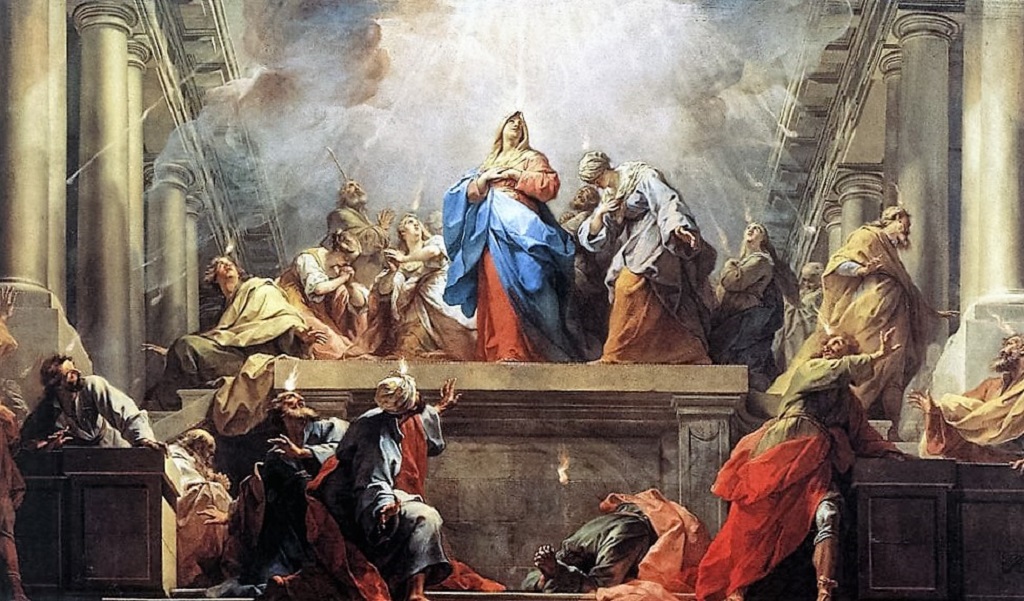And suddenly there came from the sky a noise like a strong driving wind, and it filled the entire house in which they were. Then there appeared to them tongues as of fire, which parted and came to rest on each one of them. And they were all filled with the holy Spirit and began to speak in different tongues, as the Spirit enabled them to proclaim. Acts 2:2-4
One of Jesus’ last Earthly promises was to send the Holy Spirit to the Apostles, and send it He did. A driving wind, tongues of fire, the sudden ability to proclaim the Good News in languages unspoken before: what a vivid image. What an incredible experience for the Apostles and for Mary, the Mother of God.
One might imagine that, following Jesus’ Ascension, the Apostles would be concerned about how they would continue the work at hand without Jesus. Yes, Peter had been appointed chief among them, but he was no Jesus. It was hard enough to get people to listen to the Good News when Jesus was the one teaching; what could the Apostles accomplish?
Of course, they had no way of knowing what Jesus meant when He promised to send the Holy Spirit. They had no idea that the power of Heaven would be unleashed and they would be filled with wisdom, understanding, knowledge, counsel, fortitude, piety and fear and awe of the Lord (the gifts of the Holy Spirit.)
These gifts are not reserved for the Apostles and Mary, nor for any other select group. The gifts of the Spirit are poured out upon any Catholic who has been baptized and confirmed. And yet, the whole thing still seems quite … odd, mysterious, almost unreal. It’s hard to think of ourselves as wise, or courageous, or filled with knowledge. What does this mean for you and me?
The great Christian writer C. S. Lewis, in his book Mere Christianity, put it this way:
This third Person is called, in technical language, the Holy Ghost or the ’spirit’ of God. Do not be worried or surprised if you find it (or Him) rather vaguer or more shadowy in your mind than the other two. I think there is a reason why that must be so. In the Christian life you are not usually looking at Him. He is always acting through you. If you think of the Father as something ‘out there,’ in front of you, and of the Son as someone standing at your side, helping you to pray, trying to turn you into another son, then you have to think of the third Person as something inside you, or behind you. Perhaps some people might find it easier to begin with the third Person and work backwards. God is love, and that love works through men-especially through the whole community of Christians. But this spirit of love is, from all eternity, a love going on between the Father and the Son.
And now, what does it all matter? It matters more than anything else in the world. The whole dance, or drama, or pattern of this three-Personal life is to be played out in each one of us: or (putting it the other way round) each one of us has got to enter that pattern, take his place in that dance. There is no other way to the happiness for which we were made.
We must believe that Pentecost was not a one time-only event, a bit of history like the Battle of Gettysburg or the signing of the Magna Carta. Pentecost, as Lewis points out, is here and now. It is personal for each of us. It is eternal love, given to us all; we choose to participate in it (or sadly, not.) These gifts of the Spirit, like any gift, must be opened, embraced and used. They are the eternal gifts of love from the One who loves perfectly, eternally; all we must do is celebrate these gifts.
